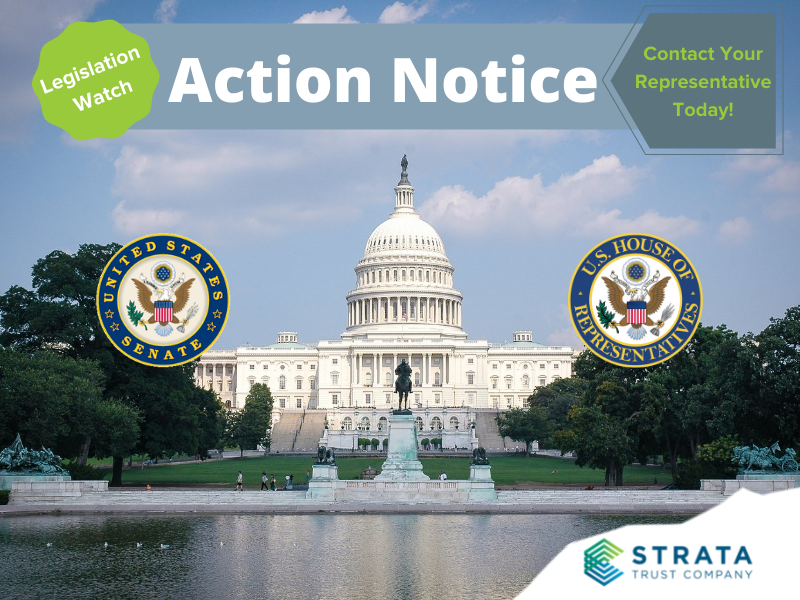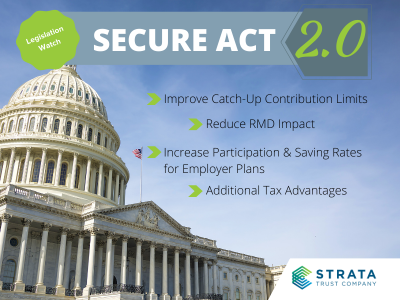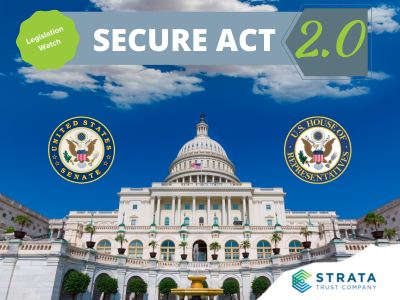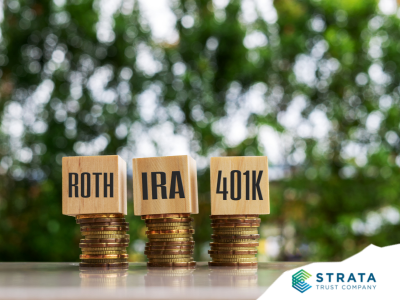Congressional Democrats have proposed changes to the laws governing individual retirement accounts (IRAs) as part of their $3.5 trillion reconciliation package. The 881 pages of proposed tax legislation cover a number of topics including new retirement plan and Roth conversion limitations as well as IRA investment limitations. These changes, if enacted into law, would have a direct negative impact on the ability to leverage IRAs in privately-placed investments.
What is even more concerning about the proposed changes is there would not be any provisions for existing IRA account holders that currently hold private placement investments. Failure to accommodate the new legislation could result in penalties that can be equal to the amount of the “new” disallowed investments, or subject the IRA to a forced distribution that would most likely incur penalties.
Proposed: New Retirement Plan Limitations
Retirement plan limitations are introduced to include account balances of $10,000,000 per person, in any year when the taxable income exceeds $400,000 for a single filer, $425,000 for a head of household, or $450,000 for a joint return.
Those that reach the new limitations will be prevented from making additional contributions to any plan. For those that currently exceed this limitation, new withdrawal rules require 50% of the excess amount to be removed. If the tax proposal is passed, those who have balances in excess of $20,000,000 must start taking the excess from their Roth IRA accounts first (if applicable). Individuals with workplace plans in excess of $2,500,000 will be required to file a new informational return with the IRS. The proposed tax legislation also prohibits deferrals to Roth 401(k) plans.
Proposed: New Roth Conversion Limitations
Back Door Roth and Mega Roth 401(k) strategies are targeted. The proposed tax legislation states only taxable amounts will be permitted for conversions. If a taxpayer’s income exceeds $400,000 for a single filer, $425,000 for a head of household or $450,000 for a joint return then no Roth conversions will be allowed at all.
Proposed: New IRA Investment Limitations
Privately-placed equity and debt securities and other investments would require the IRA owner to meet certain minimum financial, educational or licensing requirements. For example, the legislation would prohibit IRAs from holding unregistered investments that are offered to accredited investors, like equity or debt investments in small businesses or investments in private funds.
What is the most concerning for investors and financial professionals in the alternative investment space is the proposal practically forces taxpayers to only invest in assets traded on public exchanges.
The bill would prohibit IRA owners from investing in (1) non-publicly traded entities in which the IRA owner and related entities (including the IRA itself) own more than a 10% interest or (2) any entity in which the IRA owner is an officer or director, regardless of ownership percentage. By way of example, single-member limited liability companies or any investment in an entity in which an individual is a director or officer could no longer be held in an IRA. IRAs holding any of the above investments would lose all of the tax advantages previously available to the IRA.
Further, investors will be required to sell or distribute any such investments that they hold in their IRAs by no later than December 31, 2023, at a time when all IRA owners of these assets are also in forced sale or distribution mode. This could result in significant and previously unforeseen financial and tax consequences for IRA account holders, including taxes and penalties associated with any assets that could not be sold and must be distributed from the IRA.
What can you do?
Take action today by contacting elected officials in the United States House of Representatives and Senate, and tell them you oppose the new limitations for retirement plans, Roth conversions and/or IRA investment choices (Section 138312 of the House reconciliation bill). In addition to a section-by section summary, you may read the full text here.
When speaking to your representative be specific on how this proposed legislation would impact you, your family, and/or your business. If you are unsure of who represents your district in the House or Senate you can easily look up their contact information below:
- Find your U.S. Congressional Representative, go to: https://www.house.gov/representatives/find-your-representative
- Find your U.S. Senators, go to: https://www.senate.gov/senators/senators-contact.htm
- Alternative and Direct Investment Securities Association (ADISA) also has a simple form to help you find your representatives by zip code and submit your concerns directly to their offices.
Your financial security and investment freedom are our priority, together we can make a difference. At STRATA, as always – we will continue to advocate on your behalf for individual investor choice. If you have any questions about the proposed tax legislation and how it will impact you, please contact your financial or tax advisor.
The information in this communication is presented for informational purposes only. The information presented is not investment, legal, tax or compliance advice.















